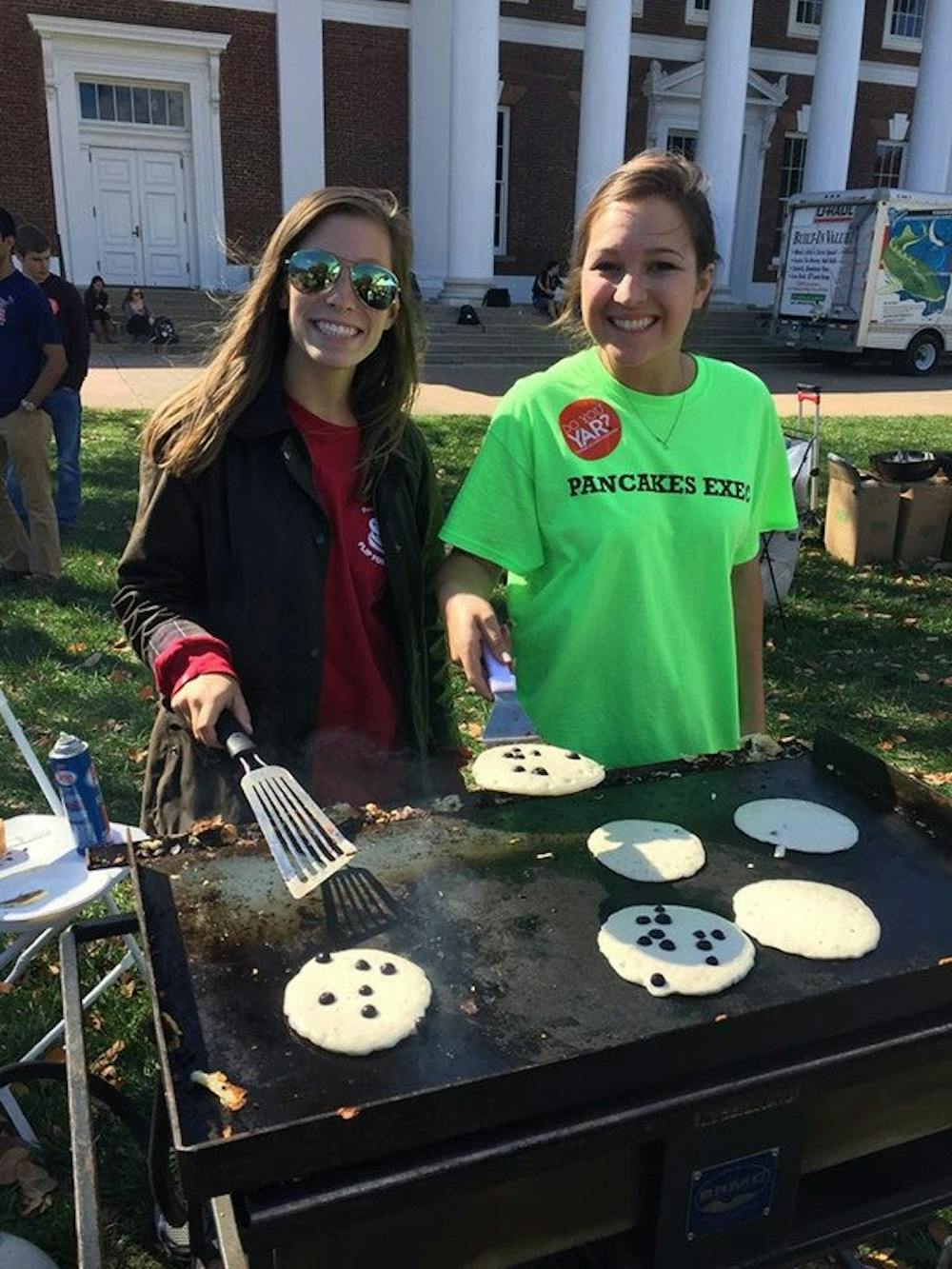During Homecomings weekend, the student group Pancakes for Parkinson’s held its 14th annual namesake event. The yearly pancake breakfast aims to bring awareness to students, faculty and the Charlottesville community about Parkinson’s disease while fundraising for research on Parkinson’s and feeding attendees.
Reilly Sheehy, a fourth-year Commerce student and co-chair of Pancakes for Parkinson’s, said in an interview with The Cavalier Daily that the event involves a long preparation process. This year, it had over 200 volunteers.
“We start about a year in advance, around January or February,” Sheehy said. “It definitely doesn’t [happen] overnight, so we partner with a lot of companies around Charlottesville that helps us perform and make things efficient and effective as possible.”
Every year the event raises money for research through t-shirt and merchandise sales and donations.
“Our goal for this entire event, and kind of for this entire season earnings is $70,000. [Right now] we are at $50,000 … From what it looks like right now, we are well on track and we hope it continues on,” Sheehy said.
Pancakes for Parkinson’s partners with the Michael J. Fox Foundation, which provides more funding for Parkinson’s disease research than any other nonprofit organization in the world. Its research focuses on ways to slow down, stop and potentially reverse the progression of the disease.
“We have raised over or nearly 750 million dollars towards Parkinson’s research”, said Lydia Herron, committee engagement officer of the foundation.
Among the event attendees was returning spokesperson for Pancakes for Parkinson’s, Marcia Aulebach. Diagnosed with Parkinson’s in 2009, the University graduate is part of Team Fox, one of the grassroots fundraising programs within the Michael J. Fox Foundation, and focuses on educating the community by spreading awareness and sharing her own experience with the disease.
Aulebach said she hopes for more people to recognize the disease.
“Parkinson’s really needs to be recognized by our country and our government, there’s more people with Parkinson’s than M.S. and diabetes combined,” Aulebach said. “We need the country to know that a little bit more.”
The organization still has plans for the future — not just for the event itself but also understanding Parkinson’s disease better. While the aging disease usually affects people around the age of 60, younger people can still receive the diagnosis.
Sheehy said he hopes to debunk this myth of the disease affecting the lives of older people.
“We are really trying to start and gear the event towards younger patients,” Sheehy said. “I think that everyone thinks of Parkinson’s as an older disease and that you get it at the later end of your life, but that is not the case.”
In addition to these plans in the future, Pancakes for Parkinson’s also wants to reach more communities and different groups of people in the future.
Henry Crochiere, a fourth-year College student and a co-chair for PFP, said the organization hopes this year’s event brought more of the Charlottesville community to Grounds for the cause.
“[We hope to] attract more Parkinson’s patients to come and sit down and engage with people who really want to help them out. And raise awareness for the cause that doesn’t have a cure yet,” Crochiere said.







